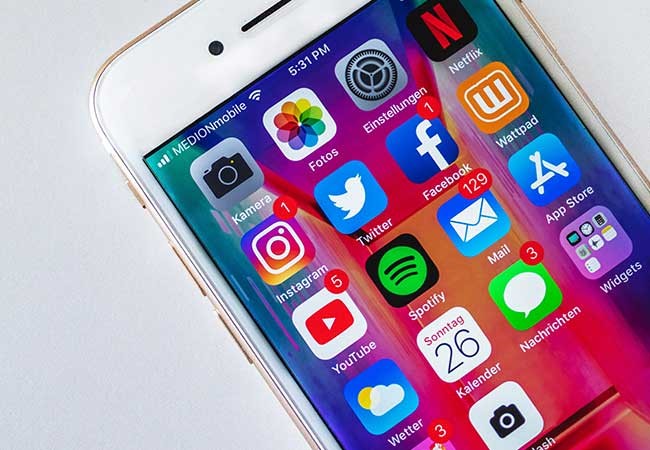What Is Social Media:
According to the Dictionary definition, “Social Media is websites and applications that enable users to create and share content or to participate in social networking.” Social media is not just limited to posting pictures about holidays online. Social media has gained credibility over the years as a reliable source of information and platform where organizations can interact with audiences.

Social Media In Education:
Today, we can see education institutions adapting these developments into their systems and relying on group resources and mechanisms to improve student life. The use of social media in education helps students, teachers and parents to get more useful information, to connect with learning groups and other educational systems that make education convenient.
Social network tools afford students and institutions with multiple opportunities to improve learning methods. Through these networks, you can incorporate social media plugins that enable sharing and interaction. Students can benefit from online tutorials through YouTube, online courses delivered by universities abroad through Skype and a wide array of resources that are shared through social networks.

There is valuable knowledge to be gained through social media such as analytics and insights on various topics or issues for study purposes. As an educational institution, it is crucial to be active in many social platforms possible, this helps create better student training strategies and shapes student culture.
The great thing about using social media in education is that you soon learn who the experts are in different fields and subjects. When you start following these experts you learn more and gain useful content from them, this empowers you to produce great results.
Social media has the ability to broaden your perspective on various subjects and gives illuminating, instant content that is new. You have the opportunity of engaging experts to get answers on topics that you may need help in.
Learning colleges have the ability to connect with students through social media networks such as Facebook, Google Plus groups, and YouTube. These channels can be used to communicate campus news, make announcements and provide students with useful information. This builds engagement between the college and students which help tackle many student issues through the group interactions.

Institutions can share supportive and positive posts that reach all students that are connected to the networks and pages. You can initiate hashtags on social media to engage students and online discussions that are helpful. A video is a prominent tool in social media trends that is effective and you can use it to share useful videos that inspire students and help them in their course subjects.
Through social mediums such as YouTube, Facebook or Instagram live video the engagements between students and the institution can be sustained. The benefits of social media in the education process doesn’t have to stop at the teacher-student relationship. There are a lot of other benefits that can be extracted from the use of social networking at higher levels as well. For example, principals or administrators can find a new way to integrate social media. Like sharing school news via social networks, holding an online meeting with the parents or even starting fundraising for different projects.
And social media can quickly become the only channel of communication since we’re living fast-paced lives, parents are usually busy with work and cannot attend school meetings. But this doesn’t mean they shouldn’t be in touch with events or be able to check on their kids occasionally.
Social media offers the audience and subject monitoring tools that are useful and it is one of the best platforms to extract data. You can find out how the majority people feel about a particular topic by creating Instagram/Facebook Polls, or conduct a survey using Google Forms or Survey monkey, or how experts perceive and advice on specific issues by using forums like Quora.
This can help students compile and produce useful content for research. Whether students are working on an assignment, working on a project or trying to gain more insight on a subject, some of the best information and results can be extracted from social media. Slideshare could help in making presentations of such data.
Learning management systems is a networking software that delivers educational programs and gives institutions other administrative activities. Social media learning in LMS can include instant chat functions, video, forums to share info and other lesson resources to help students.
The Learning Management System (LMS) strengthens student participation and makes team projects easy to collaborate. This system exists to tackle student and learning-related issues to improve education schemes. It is beneficial for institutions to use popular Learning management systems with social media integration to have the best reach and effect through the system. Other social learning benefits are live conferencing systems, webinar capability, share group reviews, blogs and much more.
Teachers also use social media as a medium to get new resources to support their lessons, activities to teach particular concepts, bulletin board ideas, information on new apps to do a follow up of certain topics as well as to network and know what is happening in schools all over the world.
The bottom line is that social media is a big part of our day-to-day life and there’s no point of keeping it away from the education process. School, college and university staff should be encouraged to make use of technology for student and parent communication. The benefits are obvious, starting with healthier parent-teacher relationships and all the way to permanently changing the way our children will learn.





